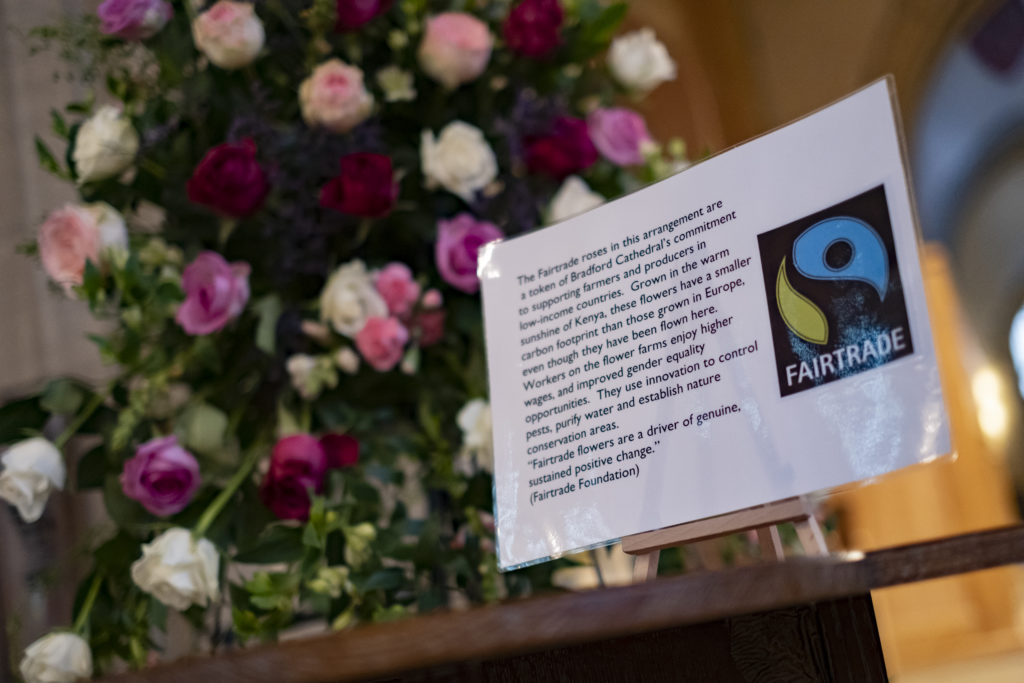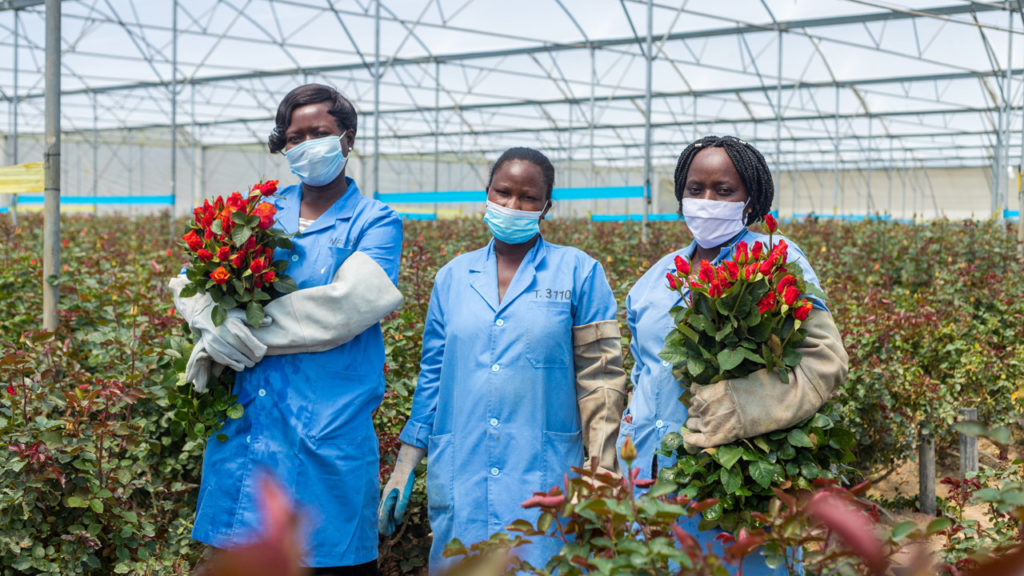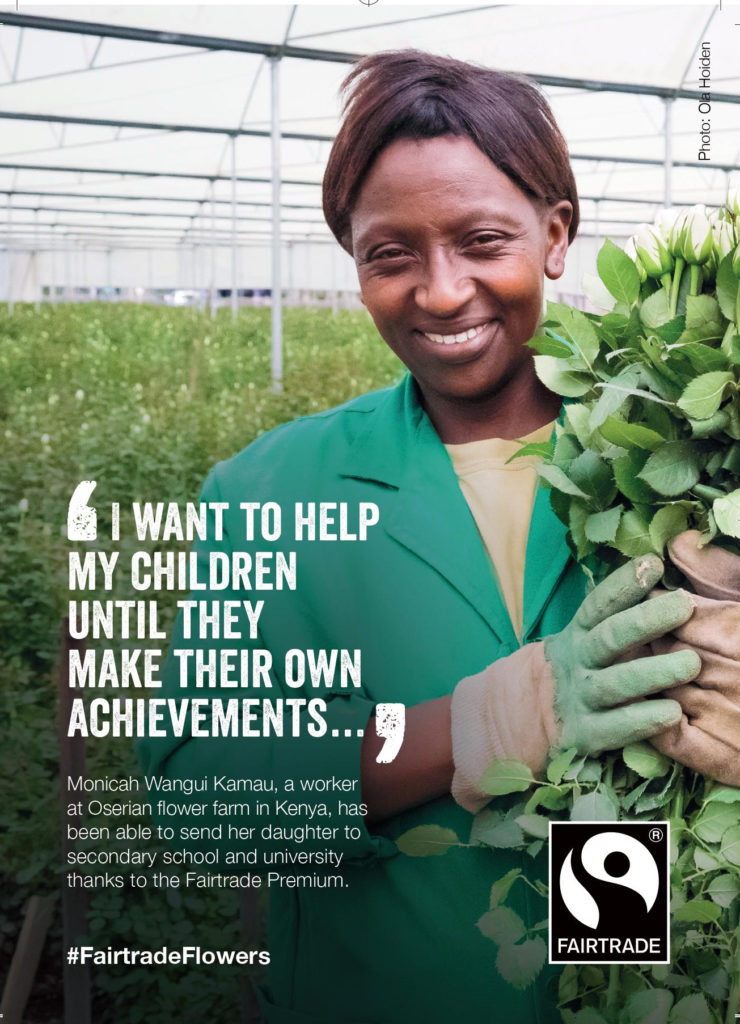Fairtrade flowers farms take an active approach in making sure that women workers have the rights, power, protections and pay they deserve.
With more Fairtrade sales here in the UK, Fairtrade flower farm workers across the world could drive even more positive change for women in their communities. So let’s make Fairtrade flowers bloom – order our free postcards to help convince your florist to go Fairtrade.
Check out our Facts, Figures and FAQs document for even more information on why choosing Fairtrade flowers is so important.
Why choose Fairtrade flowers
Too often there are stories of exploitation and injustice behind the colourful flowers we see in stores.
Many of these flowers are grown in East Africa and Latin America by workers who do not earn enough for their essentials.
That’s where Fairtrade comes in
Workers on Fairtrade flower farms earn at least the Fairtrade floor wage, even if the legal minimum wage is lower than the Fairtrade floor wage in that country, or does not exist at all.
On top of this, whenever you buy Fairtrade flowers, the sale generates an extra Fairtrade Premium.
Flower workers democratically decide how to use this Fairtrade Premium fund. Often it’s invested in education, healthcare services and affordable finance.
Flowers that stand up for women’s rights
Around half of all flower farm workers are women, many of whom have been unable to afford formal education. Sexual abuse and discrimination have historically been all too common in the flower industry.
Fairtrade farms take an active approach in making sure that women workers have the rights, power, protections and pay they deserve.
For generations, flower workers have been exploited by unfair global trade systems. Choosing Fairtrade supports change in the industry, and so it affects the lives of hundreds of thousands of people.
Are Fairtrade flowers sustainable?
An academic study (Treeze 2018 Life Cycle Assessment, Cut Roses) shows that on average, flowers grown in East Africa have a lower carbon footprint than flowers grown in Europe, even with transport taken into account. This is because the natural climate in East Africa means artificial heating isn’t necessary.
In addition, Fairtrade workers grow their flowers in line with our eco-friendly Fairtrade Standards. These standards prohibit the most harmful pesticides, protect against water waste and include guidance on protecting biodiversity. Several Fairtrade flower farms have already become carbon-neutral.
In short, if you want flowers that respect people and planet, Fairtrade is the way to go.
Other ways to back Fairtrade flower farmers and workers
Create a Fairtrade flower display in your town: Fairtrade campaigners in Yorkshire have really brightened up their community and spread awareness of Fairtrade flowers with a wonderful display in Bradford Cathedral.
Choose Fairtrade flowers: Fairtrade flowers are already available in supermarkets, florists and online.
Check out our list of Fairtrade flower sellers.
Want to know more?
Take a look at our Fairtrade Flowers Facts, Figures and Frequently Asked Questions document, linked below. As well as all the latest info on Fairtrade flowers, the document includes stories of how Fairtrade flower workers are using Fairtrade to change their communities for the better.

You can also watch a recording our Make Fairtrade Flowers Bloom campaign catch-up. It includes more details on the issues in the flower sector, how campaigners are taking action and how you can get involved.

